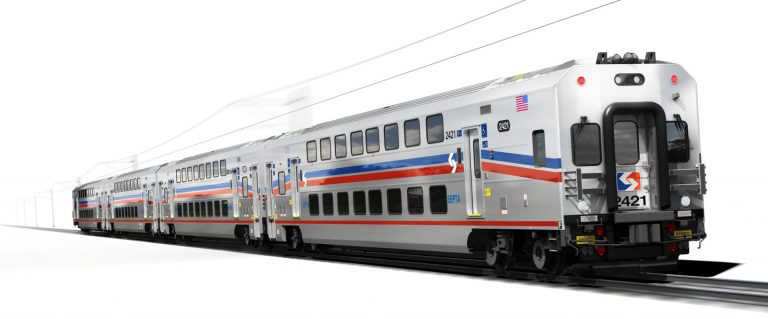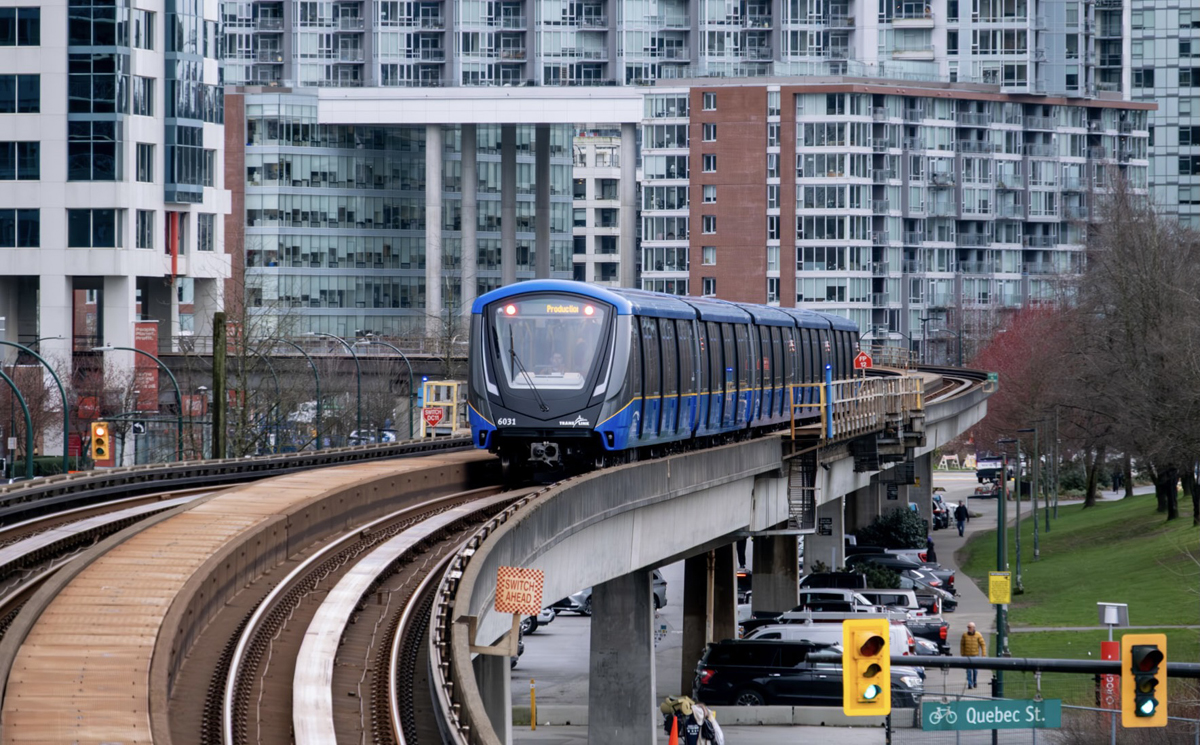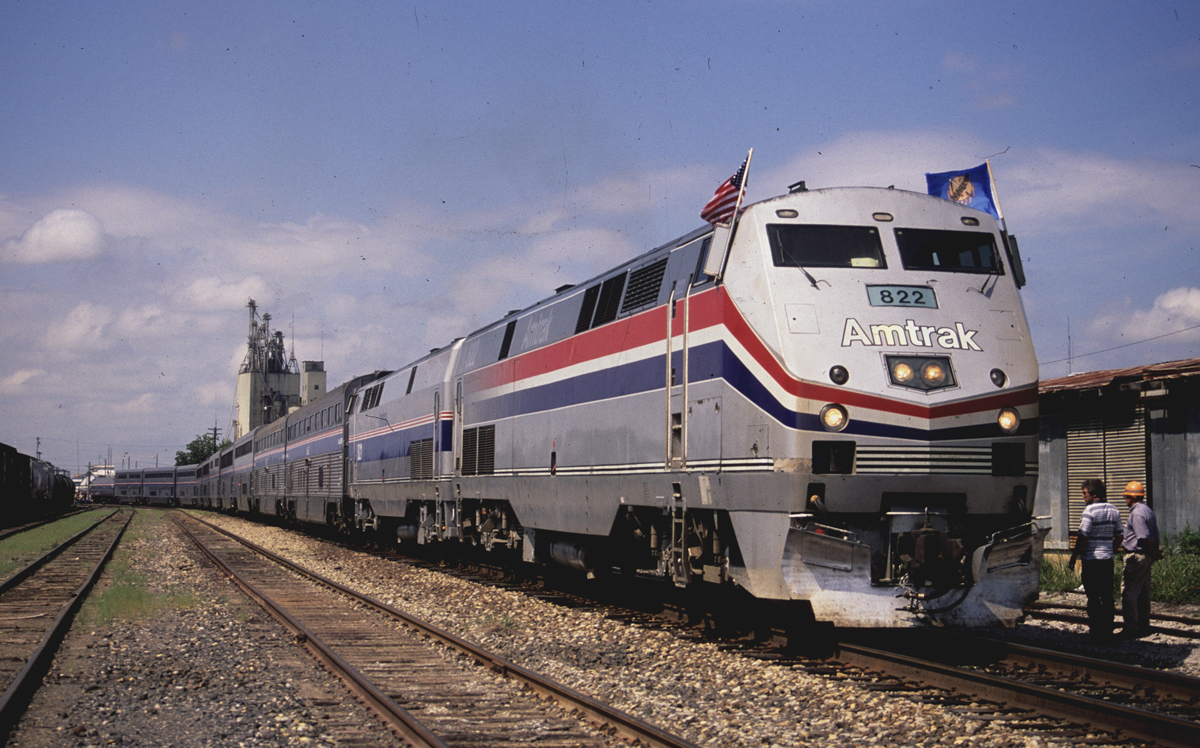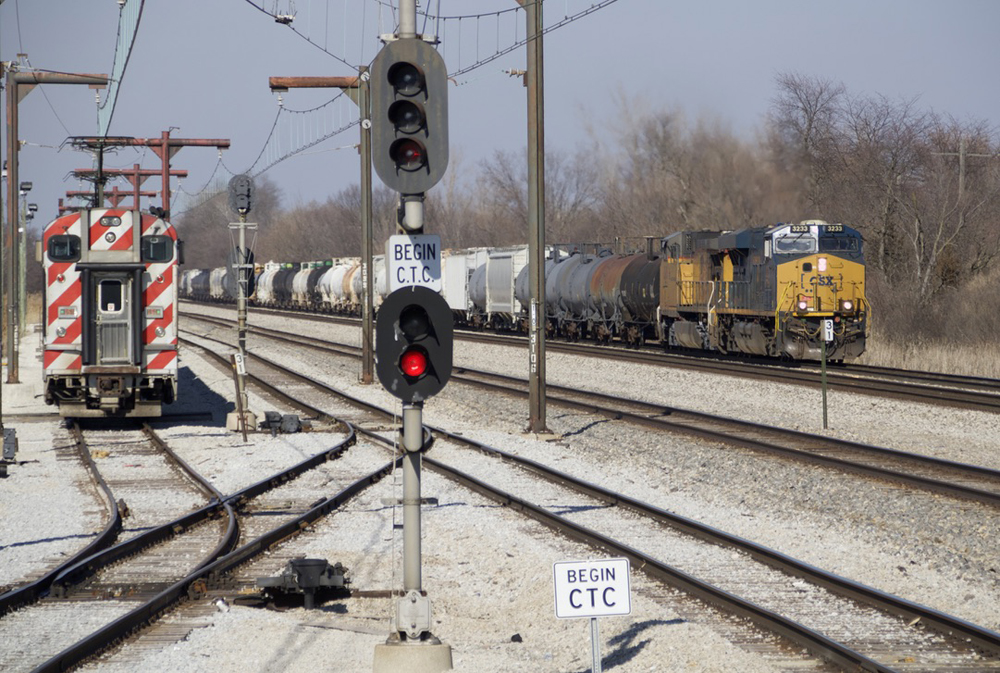
PHILADELPHIA — The Southeastern Pennsylvania Transportation Authority has “terminated with cause” its contract with the U.S. affiliate of Chinese railcar manufacturer CRRC for 45 bilevel commuter railcars, the Philadelphia Inquirer reports.
The contract was awarded in 2017, and the first cars were to have been completed in 2019 [see “SEPTA awards bid for Chinese bilevel cars,” Trains News Wire, March 24, 2017], but none have been delivered. The $185 million contract underbid Bombardier, the only other finalist, by $34 million; it came at a time when CRRC had yet to deliver any equipment in North America, but had orders in hand for equipment in Boston, Chicago, and Los Angeles.
SEPTA said in a statement that it is “assessing its options for recouping funds that have been spent on the project.” That is more than $50 million, the Inquirer reports.
The locomotive-hauled SEPTA cars, CRRC’s first commuter cars for North America, were to have seated 130 passengers and were intended to address crowding that had developed on SEPTA’s commuter lines since 2000. By 2019, they were already a year behind schedule, and in 2022, the Inquirer reports, SEPTA CEO Leslie S. Richards had reported issues with wiring, emergency exit windows, and failed watertightness and brake-test failures.
CRRC, a state-owned company, is the world’s largest rolling stock manufacturer. The SEPTA contract was with CRRC MA, the affiliate of the Chinese firm that opened a factory in Springfield, Mass., to meet “Buy America” requirements for a 404-car order for Massachusetts Bay Transportation Authority rapid-transit equipment. The first portion of that order was placed in 2014 and remains years from completion; it has been plagued with quality-control issues and operational problems for the cars that have reached service. In March, the MBTA agreed to pay $148 million beyond the initial $870 million of the two-part in an effort to see it completed by 2027 [see “MBTA to pay more …,” News Wire, March 29, 2024]. Without the additional funds, the MBTA said the order would have been completed no earlier than 2029.
Subsequent diplomatic tensions between the U.S. and China, security concerns, and congressional and industry concerns over CRRC’s potential to set artificially low prices — along with its issues in fulfilling its first American contracts — have essentially driven the Chinese manufacturer out of the U.S. passenger rail market. One provision of the MBTA agreement to complete its Red and Orange Line cars gives the transit agency an option to buy the Springfield, Mass., plant if CRRC sells it.














Who Benefits From This Endless Cycle of Repetitive Compulsion?
Why has it been so difficult for transit/commuter agencies, as well as Amtrak, to learn from the overt history of foreign manufacturers failing to meet their contracts re delivery date and quality?
Sadly, our media is so distorted that transportation writers/editors no longer exist to interpret this obsession with failure. To what extent is it related to accountants running operations; executive directors promoted via the Peter Principle, or a politicized Board of Directors pushing their personal agenda?
What happened to the once competent, strong Congress that would have prevented our urban dependence on the vagueness of Communist China, now committed to replace the USA in world dominance? If such decision-makers actually lived and breathed railroading as once before, surely they would have been concerned with the sordid history of foreign rail manufacturing, such as:
-SEPTA commuter equipment from Hyundai Rotem;
-Boston subway cars from CRCC;
-Sumitomo/Nippon Sharyo lost large contract for new intercity bi-level cars for Amtrak/states due to inability to correctly build first test car;
-Original Acela sets from Bombardier;
-New Amtrak Acela II sets from Alstom.
Perhaps if the media had not dispatched their transportation writers/editors into oblivion, a knowledge base would have existed to question the persistence of depending upon foreign rail manufacturers. As well, such a knowledge factor would have educated today’s Congress and public how the USA once enjoyed four major passenger rail manufacturers (Budd, Pullman, ACF, St. Louis Car); to investigate contributing factors to their demise, i.e., unprotected by federal government as airplane manufacturers, high cost of unionization, high cost of inconsistent stream of orders.
With such governmental funding have we lost any sense of accountability? Given the consistent lapse of responsibility for quality and delivery dates, apparently so. Indeed, a fitting quote from Yogi Berra would certainly summarize this issue, such as, “transit/commuter rail personify the sense of repetitive compulsion.”
Both of those manufacturers are good credible companies (along with Siemens) so I don’t see the problem; also, there’s nothing wrong with unions, at all.
The actual elephant in the room is why there are no domestic manufacturers of rolling stock in the United States, and the inability of past governments to make the major aerospace companies retool to make rolling stock instead of only fighter planes and all of the other military stuff the USA only builds now (the only domestic company to still make railway vehicles is Wabtec, and all they make is freight-based rolling stock.) The U.S. government should not only be getting microchips made domestically, it should also be trying to make said major aerospace companies build more than (mainly) the military aircraft that comes out of their factories (or they create state-owned companies that make the same.
It’s none of those things. It’s strictly the result that almost all government bids by law are required to go to the lowest bidder. You get what you pay for. Want better? Vote for tax increases to pay more.
It’s none of those things. It’s strictly the result that almost all government bids by law are required to go to the lowest bidder. You get what you pay for. Want better? We will need to vote for tax increases to pay more.
Where are Pullman and the Budd companies now that we need them?
Both went out of business and no new domestic ones were created or came into being. However, as I said above, the companies that comprise the U.S. military industrial complex could and should be retooled to make rolling stock, or the government can always create what we here in Canada call ‘a crown’ corporation (government-run company) to make them.
Several decades past the time when SEPTA should have updated its logo and paint scheme. Was butt-ugly in the 1970’s, drab even by the low standards of that decade.
CRRC underbid everything to get their foot in the door…and the door smashed their foot. Regulatory hurdles to build compliant equipment for the domestic rail network are impressive but laid out clearly. It’s a strange commentary that the same company that builds high-speed trains cannot so the same for commuter cars.
It may also be a general problem with government contracts: with rare exception, they are awarded to the lowest bidder. You would like to think they conducted some quality control and competence evaluation in reviewing their bid! Are not public servants supposed to exercise fiduciary care and due diligence when awarding contracts? Now the taxpayers loose, and the public waits anther five years, or more.
It appears its time to move on from CRRC. It has nothing to do with politics or global affairs, it is clearly about the inability to deliver. Way over promise, incredibly under deliver. Bids so low, it gave them no wiggle room for materials costs changes.